What Is a VoIP Number and Why Does Your Business Need One?
Posted by Saad Z. Asif in Mass Notification System on June 9, 2025
Updated on January 7, 2026

In today’s fast-paced digital world, flexibility and efficiency aren’t just nice to have; they’re essential. One area where this is especially true is business communication. Whether you’re managing a growing startup or overseeing operations for a business, the way you connect with customers, clients, and team members directly impacts your success. That’s where VoIP (Voice Over Internet Protocol) numbers come in.
A VoIP (Voice over Internet Protocol) number allows you to make and receive phone calls over the internet instead of using traditional landlines. It’s a modern alternative to legacy phone systems, and it’s transforming how businesses handle communication. From cost savings to mobility and advanced features, VoIP offers serious advantages for companies of all sizes.
In this guide, we’ll break down what VoIP numbers are, how they work, and why they’re becoming a go-to solution for businesses looking to scale communication affordably and effectively.
Build Trust with Every Message - Use a Local Number
Boost engagement and response rates with a local number your audience recognizes.
What Is a VoIP Number?
A VoIP number is a phone number that uses Voice over Internet Protocol (VoIP) technology to make and receive calls over the internet rather than through traditional phone lines. Instead of being tied to a physical location or device, like a landline, VoIP numbers are cloud-based, meaning you can use them on smartphones, laptops, desktops, or VoIP-enabled phones.
In other words, a VoIP number functions like any regular phone number, but with much more flexibility.
How VoIP Differs from Traditional Phone Systems
Traditional phone systems rely on circuit-switched networks that require physical infrastructure (like copper wires or PBX [Private Branch Exchange] hardware). These systems are expensive to install, limited in functionality, and challenging to scale.
In contrast, VoIP systems use packet-switching technology, allowing voice data to be sent digitally over the internet. This enables faster setup, lower costs, and added functionality like call forwarding, voicemail transcription, and integration with other business tools.
Global Communication, Local Numbers
One of the key advantages of VoIP technology is the ability to obtain local, toll-free, or even international numbers, giving your business a global presence without needing physical offices in every region.
Whether you’re a small team working remotely or an established company expanding internationally, VoIP numbers offer the scalability and reach that traditional systems can’t match.
Key Benefits of VoIP Numbers for Business
VoIP numbers don’t just replace traditional phones; they enhance the way your business communicates. Here’s how adopting VoIP can help your organization save money, scale efficiently, and work smarter.
Cost Efficiency
Traditional phone systems often come with high installation fees, expensive international calling rates, and maintenance costs. VoIP eliminates much of that.
- Lower monthly service fees
- Free or low-cost domestic and international calls
- Reduced hardware and infrastructure requirements
For small businesses, this translates into significant savings, especially if you’re managing remote teams or handling frequent customer interactions.
Scalability
Growing businesses need tools that grow with them. With VoIP, adding or removing phone lines is as simple as updating your user list, no technician visit or rewiring required.
- Instantly add new users or extensions
- Scale up or down based on seasonal needs or team size
- Easily manage users through an online dashboard
Whether you’re hiring your first employee or launching a new branch, VoIP adapts to your structure.
Flexibility & Mobility
VoIP numbers are not tied to a specific device or location. That means your team can take calls from anywhere with an internet connection, perfect for remote work, travel, or hybrid office setups.
- Use VoIP on phones, laptops, tablets, or VoIP-enabled desk phones
- Route calls to different devices based on schedules or availability
- Stay connected from the office, home, or on the go
This flexibility makes VoIP an ideal solution for businesses embracing a geographically distributed or mobile workforce.
Enhanced Features
Modern VoIP systems come with a suite of features that go beyond basic calling. These tools help streamline operations, improve customer interactions, and reduce the need for multiple communication tools.
- Call forwarding and routing
- Voicemail-to-email transcription
- Call recording and analytics
- Video conferencing and SMS messaging
- Auto attendants and interactive voice response (IVR)
- Support for E-911
These features help businesses present a professional image and keep communication organized, all from one platform.
Better Customer Service
VoIP systems can integrate with CRM (Customer Relationship Management) platforms, help desks, and ticketing tools, allowing for better tracking of customer interactions and faster issue resolution.
- Access caller details before picking up the phone
- Route calls to the right team automatically
- Maintain detailed communication logs for training and performance tracking
Improved responsiveness leads to better customer satisfaction, retention, and referrals.
Reliability & Security
Many VoIP providers like DialMyCalls offer 99.99% uptime, data encryption, and redundancy protocols to ensure reliable, secure communication.
- Redundant server networks reduce downtime risk
- Call encryption protects sensitive data
- Built-in failover routing ensures calls aren’t missed
With the right provider, VoIP offers both stability and peace of mind, without the maintenance burden of traditional systems.
Build Trust with Every Message - Use a Local Number
Boost engagement and response rates with a local number your audience recognizes.
Why Your Business Needs a VoIP Number
Switching to a VoIP number isn’t just a tech upgrade; it’s a strategic move that can improve operations, reduce overhead, and modernize how your business communicates.
Solve Common Pain Points
Many businesses still rely on outdated phone systems that are expensive, rigid, and unreliable. Missed calls, limited lines, and clunky hardware can slow your team down and frustrate customers.
VoIP solves these issues with:
- Cloud-based access that works wherever your team does
- Seamless call routing to avoid dropped or missed communications
- Simple setup and maintenance, with minimal IT department involvement
Whether you’re operating across multiple locations or managing a hybrid team, VoIP ensures your calls are never tied to a single desk or device.
Boost Productivity and Collaboration
Modern VoIP platforms integrate with the tools your team already uses, such as CRM software, help desks, calendars, and more. That means less time switching between systems and more time getting things done.
- Connect phone calls with support tickets or client records
- Use voicemail transcription and call logging for easier follow-up
- Enable video calls and SMS (Short Message Service) without using multiple tools
This level of integration makes it easier to manage communication workflows and keep everyone on the same page.
Offer a Better Customer Experience
With features like auto-attendants, call queues, and smart routing, you can provide fast, personalized service to every caller. Even small teams can deliver the kind of polished experience customers expect from larger companies.
A VoIP number can also give your business a local presence in new markets, even if your team is remote or centralized in one location. That’s a powerful tool for building trust and growing your customer base.
Lower Your Communication Costs
From reduced hardware expenses to unlimited local and international calls (depending on your provider), VoIP can dramatically cut communication costs for small and mid-sized businesses. You only pay for what you use, and scaling up doesn’t require costly infrastructure investments.
In short, VoIP empowers your business to be more flexible, more efficient, and more competitive. And with providers like DialMyCalls offering VoIP capabilities alongside mass texting and voice broadcasts, it’s easier than ever to consolidate your communication strategy into one powerful platform.
How to Get Started with VoIP for Your Business
Adopting VoIP for your business might sound like a significant transition, but the setup process is often more straightforward than switching internet providers. With the right tools and support, you can start using VoIP in just a few steps.
1. Choose a Reliable VoIP Service Provider
Start by evaluating VoIP providers that specialize in business communication. Look for platforms that offer:
- Local and toll-free number options
- High uptime and call quality
- Easy-to-use dashboards and mobile apps
- Features like voicemail-to-email, call routing, and SMS support
- Integration capabilities with your CRM or helpdesk tools
- Satellite back up or other forms redundancy (secondary internet connection)
- International presence
- 24/7 Support
Providers like DialMyCalls offer VoIP services alongside mass texting, voice broadcasting, and number management, ideal for businesses that want an all-in-one communication hub.
2. Get a VoIP Number and Set Up Your System
Once you’ve chosen a provider, you can select the type of VoIP number you need:
- Local numbers for establishing a community presence
- Toll-free numbers for nationwide customer access
- Vanity or custom numbers for brand recognition
After choosing your number, set up call routing, voicemail, extensions, and any automated features your team may need. Most VoIP systems offer intuitive setup tools with no need for physical hardware.
3. Start Making and Receiving Calls
Once your number and system are configured, your team can begin placing and receiving calls using:
- Desk phones connected via Ethernet
- Softphones (VoIP apps such as Skype) on computers or tablets
- Mobile apps on smartphones such as WhatsApp
You’ll also have the ability to manage your phone system on the go, adjust call routing, check voicemails, and monitor usage from any internet-connected device.
With VoIP, your communication system becomes a flexible, cloud-based solution that can scale as your business grows.
Related Article: Local vs. Toll-Free: Which Number Type Do People Trust More? [Survey Data Inside]
Conclusion

A VoIP number is more than just a modern phone line; it’s a smarter, more flexible way to run your business communications. Whether you’re looking to cut costs, support remote work, improve customer service, or scale your operations, VoIP offers the tools and features to make it happen.
Unlike traditional phone systems, VoIP is built for today’s businesses: fast-moving, cloud-based, and customer-focused. With benefits like cost savings, mobility, advanced features, and easy scalability, it’s no surprise that more small and mid-sized businesses are making the switch.
If you’re ready to upgrade your communication system without breaking your budget or getting bogged down in technical complexity, a VoIP number is the place to start.
Explore DialMyCalls to see how our VoIP solutions, local and toll-free number options, and all-in-one communication tools can help your business stay connected and grow faster and smarter.
Build Trust with Every Message - Use a Local Number
Boost engagement and response rates with a local number your audience recognizes.
Author

Saad Z. Asif is a telecom executive and author with over 27 years of global experience in 3G, 4G, 5G, and IoT innovation. He has held leadership roles at Verizon, T-Mobile, Telenor, and VEON, and advised governments on award-winning telecom policies. Saad is the founder of Galaxy Technology Consulting LLC and author of three books on telecommunications.
Try Using DialMyCalls Right Now
Start For Free
Recent Posts
- How to Send Emergency Alerts During Network Outages or Low Connectivity
- What Is NG9-1-1? How Next-Generation 911 Will Transform Emergency
- How to Use Fire Emergency Alerts to Improve Safety Response
- Why FERPA Compliance Matters for School Emergency Notification Systems
- 6 Best Alternatives to AT&T and Verizon Email-to-Text For Business Messaging in 2026
Categories
“I am a youth minister and have spent hours in the past calling students individually to remind them of an upcoming event or to get out an urgent announcement. With DialMyCalls.com, I cut that time down to about 1 minute. I also love how I can see exactly who answered live and how long they listened so I know if they heard the whole message. DialMyCalls.com is the best website I have stumbled upon all year! Thanks!”
Central Baptist Church
Try Using DialMyCalls Right Now
Start For Free
Author

Saad Z. Asif is a telecom executive and author with over 27 years of global experience in 3G, 4G, 5G, and IoT innovation. He has held leadership roles at Verizon, T-Mobile, Telenor, and VEON, and advised governments on award-winning telecom policies. Saad is the founder of Galaxy Technology Consulting LLC and author of three books on telecommunications.
Try Using DialMyCalls Right Now
Start For Free
Recent Posts
- How to Send Emergency Alerts During Network Outages or Low Connectivity
- What Is NG9-1-1? How Next-Generation 911 Will Transform Emergency
- How to Use Fire Emergency Alerts to Improve Safety Response
- Why FERPA Compliance Matters for School Emergency Notification Systems
- 6 Best Alternatives to AT&T and Verizon Email-to-Text For Business Messaging in 2026
Categories
“I am a youth minister and have spent hours in the past calling students individually to remind them of an upcoming event or to get out an urgent announcement. With DialMyCalls.com, I cut that time down to about 1 minute. I also love how I can see exactly who answered live and how long they listened so I know if they heard the whole message. DialMyCalls.com is the best website I have stumbled upon all year! Thanks!”
Central Baptist Church
Try Using DialMyCalls Right Now
Start For Free
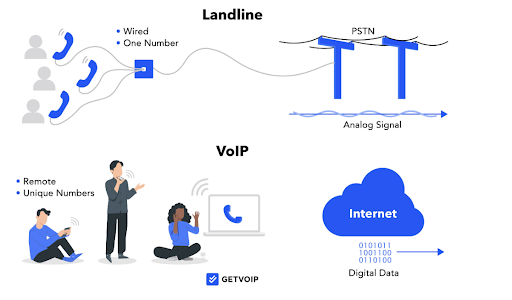
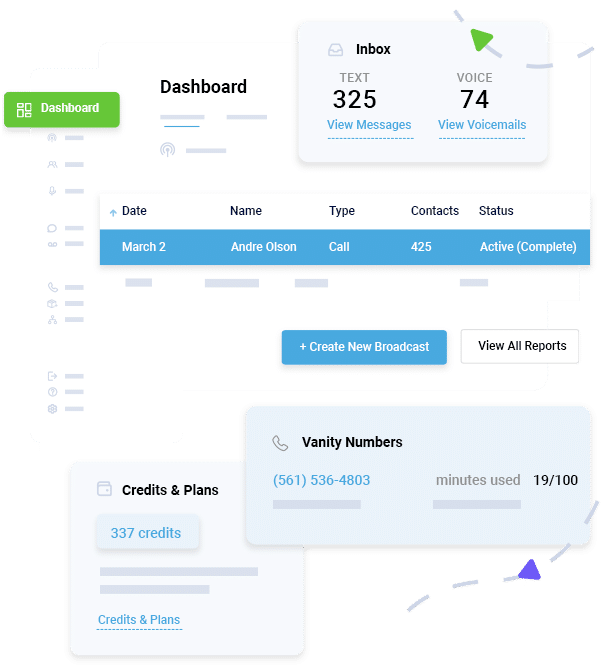
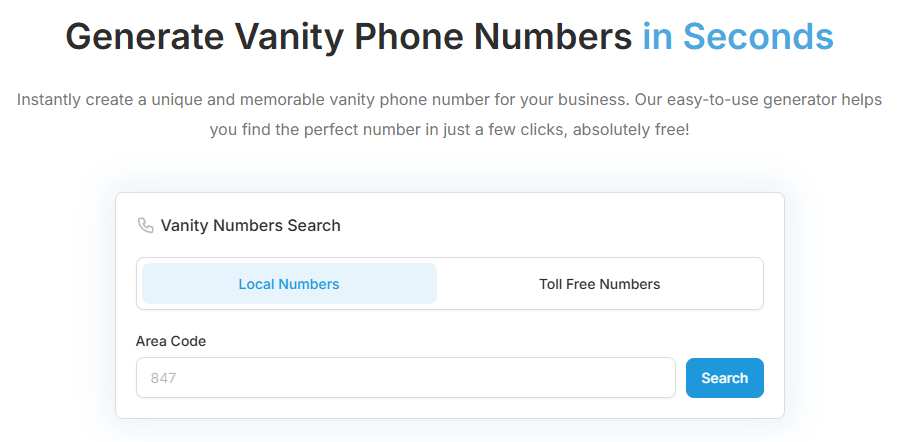
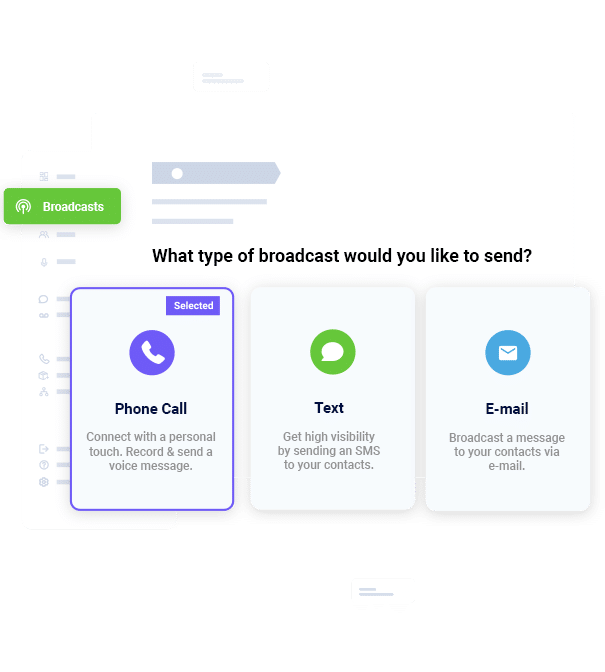
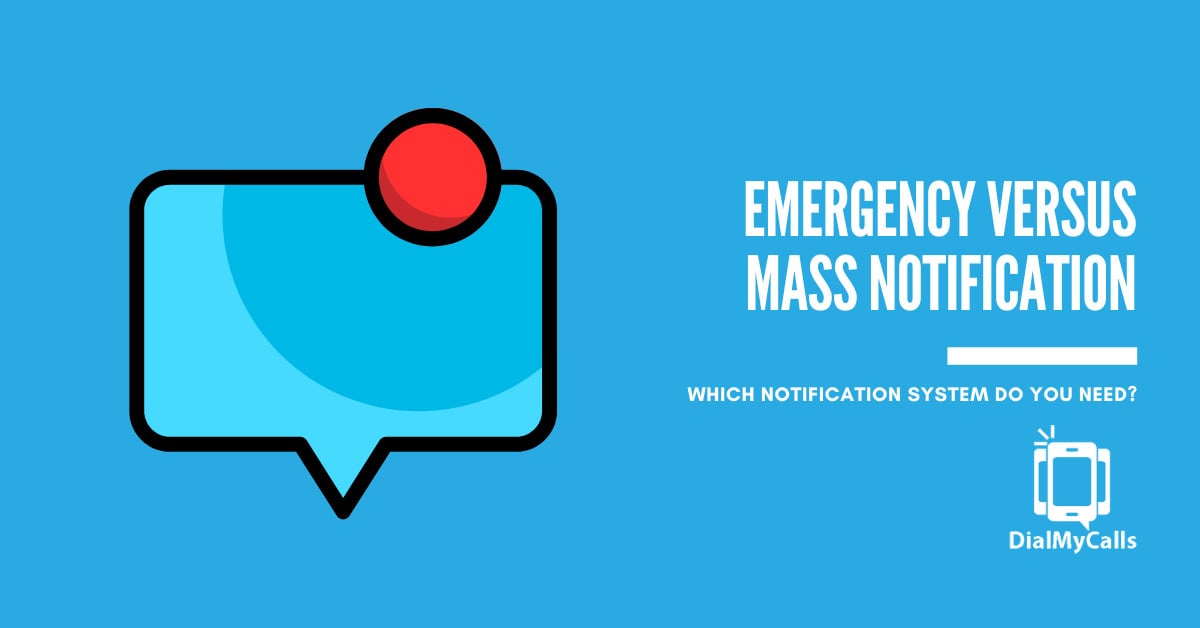

![What Is Conversational AI in SMS & Calling? [+ Real-World Applications]](https://www.dialmycalls.com/wp-content/uploads/2025/06/conversational-ai-in-sms-and-calling.jpg)